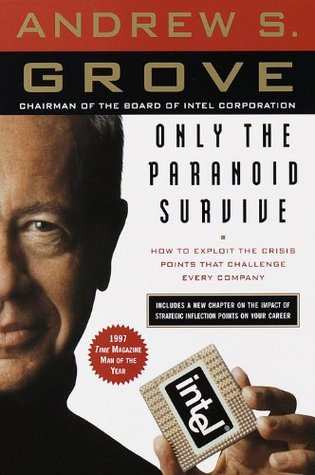More on this book
Community
Kindle Notes & Highlights
You need to plan the way a fire department plans: It cannot anticipate where the next fire will be, so it has to shape an energetic and efficient team that is capable of responding to the unanticipated as well as to any ordinary event.
One, don’t differentiate without a difference. Don’t introduce improvements whose only purpose is to give you an advantage over your competitor without giving your customer a substantial advantage.
We became good at solving problems. We became highly focused on tangible results (our word for it is “output”). And from all the early bickering, we developed a style of ferociously arguing with one another while remaining friends (we call this “constructive confrontation”).
If you are in middle management, don’t be a wimp. Don’t sit on the sidelines waiting for the senior people to make a decision so that later on you can criticize them over a beer—”My God, how could they be so dumb?” Your time for participating is now. You owe it to the company and you owe it to yourself. Don’t justify holding back by saying that you don’t know the answers; at times like this, nobody does. Give your most considered opinion and give it clearly and forcefully; your criterion for involvement should be that you’re heard and understood. Clearly, all sides cannot prevail in the debate
...more
Contemporary management doctrine suggests that you should approach any debate and argument with data in hand. It’s good advice. Altogether too often, people substitute opinions for facts and emotions for analysis. But data are about the past, and strategic inflection points are about the future. By the time the data showed that the Japanese memory producers were becoming a major factor, we were in the midst of a fight for our survival.
First, it is very hard to lead an organization out of the valley of death without a clear and simple strategic direction. After all, getting there sapped the energy of your organization; it demoralized your employees and often set them against one another. Demoralized organizations are unlikely to be able to deal with multiple objectives in their actions. It will be hard enough to lead them out with a single one.
If you’re wrong, you will die. But most companies don’t die because they are wrong; most die because they don’t commit themselves. They fritter away their momentum and their valuable resources while attempting to make a decision. The greatest danger is in standing still.
The point is this: how can you hope to mobilize a large team of employees to pull together, accept new and different job assignments, work in an uncertain environment and work hard despite the uncertainty of their future, if the leader of the company can’t or won’t articulate the shape of the other side of the valley?
At times like this, your calendar becomes your most important strategic tool. Most executives’ schedules are shaped by the inertia of prior actions. You are likely to accept appointments, attend meetings and schedule activities that are similar to what you had been doing in the past. Break the mold now. Resist the tacit temptation to accept invitations or make appointments because you have done so in the past. Ask yourself the questions, “Will going to this meeting teach me about the new technology or the new market that I think is very important now? Will it introduce me to people who can
...more


